
Admissions

Entry and Transfer Student Admission Qualifications
In principle, the school-age calculation is based on Article 17 of the Enforcement Regulations of the School Education Law in Japan.
Classes are conducted in Japanese, using Japanese textbooks established by the Ministry of Education, Culture, Sports, Science and Technology of Japan, and are advanced following the progress of compulsory education in Japan, so enrolled children and students must meet the following conditions:
-
Ability to have basic conversations in school-age Japanese without difficulty.
-
Students who wish to transfer must be able to read, write and understand Japanese equivalent to school age.
The school conducts interviews and transfer admission tests for children and students who wish to enter the school. The interview will be conducted by the school principal or school director and the teacher of the desired grade. In addition, when transferring from a school in Japan, we will be exempt from the transfer test.
Parental Responsibility
Parents and guardians of our school children are aware that our school is operated by voluntary activities by related parties, and have the responsibility to actively cooperate in daily school management.
Parents and guardians shall promptly respond to warnings and recommendations from the student's teacher or the principal regarding students who are noticeably late, leave early, are absent, or act that significantly interferes with the progress of the class, and cooperate in the smooth progress of the class.
About Enrollment Trials
Applicants for the one-day trial enrollment are allowed to attend the trial enrollment accompanied by a guardian, assuming that they are willing to enroll. Admission fees and tuition fees will not be collected for one-day trial admission. Two days or more will be treated the same as enrolled students.
Rules of Anchorage Japanese School
「Always Talk in Japanese」
-
Using a lot of Japanese not only during class but also during breaks will help us become fluent in Japanese.
「Never forget your gratitude to the people who lend us their school」
-
Do not run or make loud noises inside the school building.
-
Don't touch anything at school without a teachers permission.
-
Use chairs and desks with care.
-
Use the toilet cleanly.
-
Do not eat or drink in classrooms or hallways.
-
If you break something, tell your teacher.
「Learning Before Playing」
-
When playing outside the school building, be sure to do so only when an adult (teacher or an office staff) is watching.
-
Computer games, music, and chewing gum are prohibited.
-
Be quiet during class, be punctual, and make a distinction between studying and playing.
-
Keep your surroundings organized.
-
Help each other out.
-
Older students should act as a role model for younger students.
-
During breaks, make sure you're prepared for the next class before having fun.
「About Tardies, Leaving Early, and Absences」
-
If you are not here by 9:00, you will be considered late, and if you are late three times, it will be considered one absence.
「Using The Libraries」
-
Each person can borrow up to two books for two weeks.
-
During summer and winter vacation, you can borrow up to 5 books.
「Breaks and After School」
-
Never play around in the parking lot.
-
Don't play outside when adults aren't around.

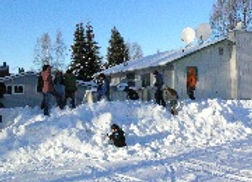


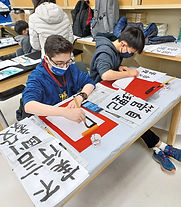
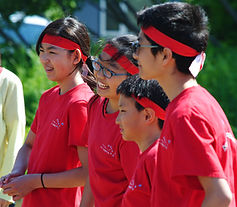
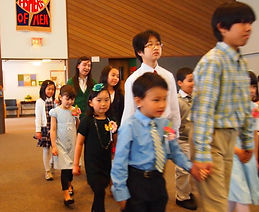
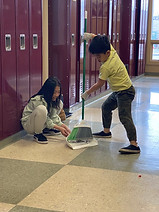
.png)
